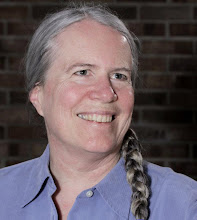Evidence in History
Timothy Burke writes about the danger of distorting evidence in historical writing. It reminds me of a story that I heard Gerald Holton tell in a paper at a history of science conference many years ago. He had been reading Millikan's lab notebooks from the famous Millikan Oil Drop Experiment. Holton's conclusions are published in: Holton, Gerald. 1978. "Subelectrons, presuppositions and the Millikan-Ehrenhaft Dispute." Historical Studies in the Physical Sciences 9:166-224. Reprinted pp.25-83 in The Scientific Imagination (Cambridge Univ. Press, 1978).
In his experiment Millikan measured the electrical charge of oil droplets by how they moved in a magnetic field and calculated that the charges only came in certain amounts. You could have an oil drop with a charge of 2 or 4, but not one with a charge of 2.5. This showed that electricity came in fixed amounts in particles that came to be called electrons rather than being something that could come in any amount (like heat).
On each page of the notebook Millikan goes through a lengthy calculation to find the charge of a single oil drop. If you have done the modern version of the experiment be aware that Millikan's version was much more complicated because he had to calculate a correction for the evaporation of the oil. Holton showed us a slide of one notebook page in which Millikan's calculation found a charge almost exactly half way between the fixed amounts. At the bottom of the page Millikan wrote: "This couldn't be an oil drop." And it may not have been--it may have been a dust mote. (A defense of Millikan.)
Some scholars argue that Millikan was not as ethical as he should have been--in fact the 58 observations Millikan reports in his scientific paper are culled from at least 107. I draw a different conclusion. We make sense of the world by a process of simplification--we could never know anything unless we select for the evidence relevant to the particular simplification we want to make. As a historian, I select the evidence that is relevant to the point I want to make rather than putting a lot of irrelevant evidence in my paper. Someone else may come along and feel I have distorted the story. I can avoid some of that problem by being honest about my point of view. It is certainly possible to take selection too far so that it becomes distortion, and that is to be avoided and criticized. But selection is necessary and there is no nice neat line that defines when you have gone too far.


No comments:
Post a Comment